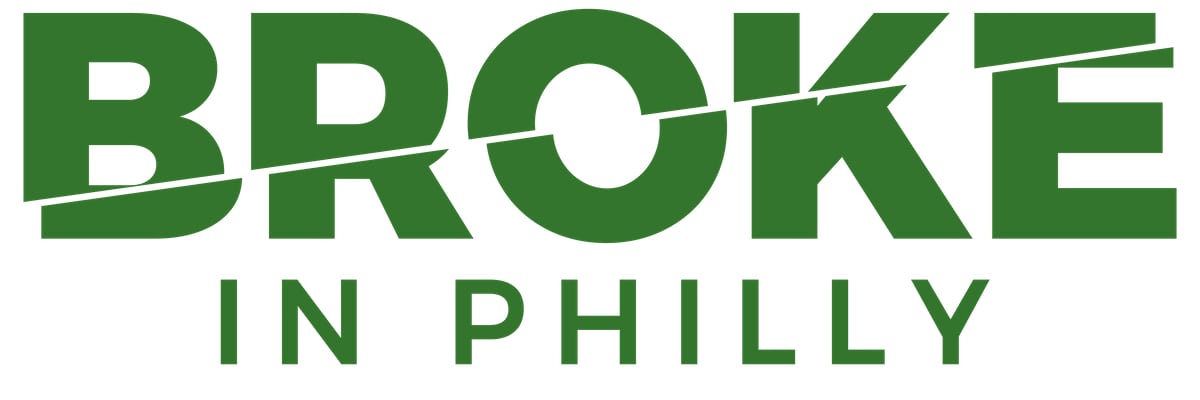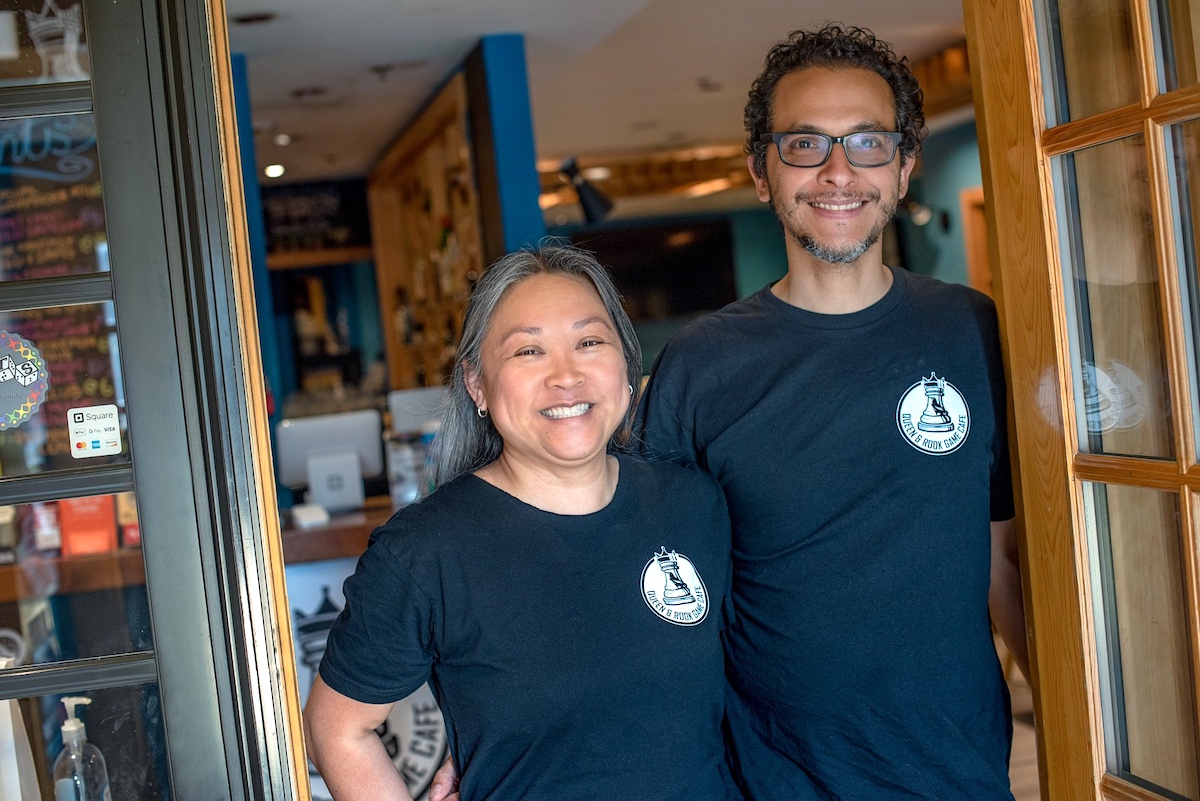
Technical.ly is one of 20+ news organizations producing Broke in Philly, a collaborative reporting project on solutions to poverty and the city’s push toward economic justice.
The frantic messages poured in late on Saturday: America’s latest mass shooting had just happened on South Street, one of Philadelphia’s busiest commercial corridors.
Just before the night of June 4 rolled into Sunday morning, 14 people were shot — three of whom were killed — by gunfire after a physical altercation turned into a shootout in the busy street near Headhouse Square.
It was Philly’s worst shooting in years, though 13 more people were shot across the city the very next day in separate instances, the Philadelphia Center for Gun Violence Reporting dashboard shows. Overall, shootings in Philadelphia are way, way up since the pandemic started — 1,463 people were shot in 2019, compared to 2,326 in 2021, according to Pew Charitable Trust’s most recent State of the City report.
That report found that violent crime has stayed roughly the same year to year for the last five years. But while other violent crime decreased last year, robberies with a gun increased dramatically (28%) in 2021. The report found that 65% of all residents heard gunshots in their neighborhood in the last year, with Black and Latinx residents hearing guns at 78% and 76%, respectively. Calls to city officials and community leaders to address this epidemic have become more urgent as the numbers have risen.
As we’ve seen in other parts of the city, violence not only affects lives, but livelihoods. Gun violence, specifically, presents an overwhelming economic burden to communities, a recent City of Philadelphia safety report found:
“On average, a firearm homicide is associated with an estimated cost of $1.42 million due to medical expenses, lost earnings/productivity, property damage, and criminal justice costs,” the report says. “The 351 homicides in 2018 alone will result in close to $500 million in economic burden to Philadelphia. A non-fatal firearm-related injury costs $46,632 in medical expenses and lost productivity, and based on the 1,403 shootings in 2018, the cost to Philadelphia alone will be more than $65 million.”
In all, across the US, mass shootings are estimated to cost Americans about $229 billion per year. What does that mean for the small business owners whose shops sit on streets where gun violence occurs?
The burden of gun violence on small businesses
For Edward Garcia, co-owner of Queen & Rook Game Cafe located on South Second Street, less than a block from the shooting Saturday, the tragic event is yet another financial and mental hurdle for the business. On Monday, he penned an op-ed for The Philadelphia Inquirer, arguing that people who are pro-small business must also be pro-gun control.
Since it’s opened, Queen and Rook has had to make pivot after pivot, first for COVID-related shutdowns, then for civil unrest after protests relating to George Floyd’s murder in 2020, and now with the rise in gun violence.
“It has felt like small businesses have had to take on all of society’s problems all at once,” Garcia told Technical.ly on Tuesday.
The cafe was slated to be open until 1 a.m. like it always is Saturday nights when the shooting broke out down the block. People scrambled, Garcia said, and they moved as many people sitting at their outdoor tables inside to shelter. A customer was pepper sprayed by a member of the moving crowd.
Garcia said the team showed up the next day to the Roots Picnic to work that event as planned, but the celebratory and fun vibe felt strange against the backdrop of the night before.
“South Street is known as a great place to celebrate and have a great time with friends — the one poor kid who was killed was out celebrating his birthday with friends. A shooting like this diminishes a lot of good that happens on South Street,” Garcia said. “There were thousands of people out Saturday night having a good time and it only took two people to ruin it for everyone.”
It’s hard to yet say how the shooting will affect the Queen & Rook, Garcia said, as they’re still waiting to hear from a neighborhood business association and the City on if it will be assigning curfews to the area. Garcia and co-owner and wife Jeannie Wong held a staff meeting Tuesday to talk about potential safety changes. They know that there may be staff members who are no longer willing to work nights.
“We know we might lose some good people that are otherwise making us happy and earning their living here,” Garcia said.
What can business owners do?
Jabari Jones, president of the West Philadelphia Corridor Collaborative, said that feeling of a lack of physical safety has affected his neighborhood, too. Between civil unrest, police brutality and the killing of a clothing store owner last July, business owners in West Philadelphia have had tough decisions to make.
“The biggest thing I would recommend is sometimes you do have to take a break,” Jones said. “It can be traumatizing, exhausting.”
For a business owner — and for anyone — prioritizing mental health and well-being among traumatizing events should be number one on the list, he said. That could mean closing your business for a few days, checking in with your staff to see who might need time off, or realizing you yourself need time off.

West Philadelphia Corridor Collaborative’s Diamonique Robinson (left) and Jabari Jones. (Courtesy photo)
Some practical things business owners can do is to check that their insurance covers property damage and to set up a security camera to check surroundings before or after leaving their store. Though it might be controversial, if hired security makes owners or employees feel safe, that’s an option too, Jones said.
But all these options add cost to an owner. Some local businesses have begun closing earlier, Jones said, which forces business operators to leave revenue on the table each day. Others have considered moving or have moved their businesses outside of the city. Gun violence has compounded labor struggles and challenges from the COVID-19 pandemic, Jones said.
The West Philadelphia Corridor Collaborative has aimed to find connected, wholistic approaches to public safety. Most of the org’s solutions have come from the ground up, talking to people directly and identifying key problems and solutions, he said. Its Project Safe Corridors, which recently gave 300 businesses and residents cameras, was one of those solutions.
“What I’ve learned from this is everyone should take their time. Everybody’s different in how they can process,” Jones said. “Some people can go to the store the next day, but it’s OK to take the kind of time you need to get back out there.”
Join the conversation!
Find news, events, jobs and people who share your interests on Technical.ly's open community Slack

Philly daily roundup: Student-made college cost app; Central High is robotics world champ; Internet subsidy expiration looms

Philly daily roundup: Earth Day glossary; Gen AI's energy cost; Biotech incubator in Horsham

Philly-area startup for investing in real estate debt rebrands with wider offerings


